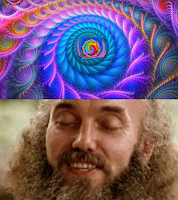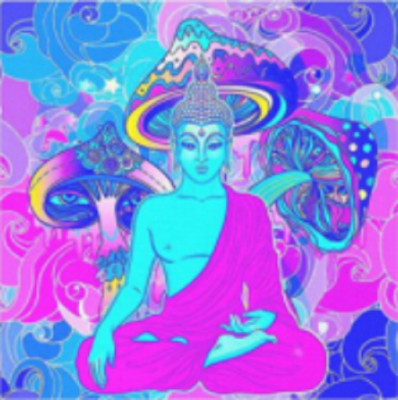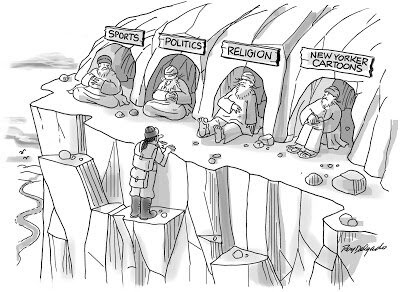 |
| Culinary truffles are dangerous for those who forage without sufficient experience and care. |
Muscimol: The legal "magic mushroom"
 |
| The Buddha sitting on Fly agaric |
 |
| The Psychedelic Sangha (psychedelicsangha.org) |
.
Cunda Sutra: Cunda the silversmith
Initial translation by Ven. Thanissaro; edited and expanded by Dhr. Seven, Amber Larson, Pat Macpherson (eds.), Wisdom Quarterly
 Thus have I heard. On one occasion, while the Buddha was wandering in the land of the Mallans with a large community of monastics, he arrived at Pāvā. He rested near the city in the mango grove of Cunda the silversmith.
Thus have I heard. On one occasion, while the Buddha was wandering in the land of the Mallans with a large community of monastics, he arrived at Pāvā. He rested near the city in the mango grove of Cunda the silversmith.Cunda the silversmith heard, "The Blessed One, they say, while wandering in the land of the Mallans with a large community of monastics and reaching Pāvā, is staying near Pāvā in my mango grove."
So Cunda went to the Blessed One, bowed, and sat respectfully to one side. As he was sitting there, the Buddha instructed, urged, roused, and encouraged him with a Dhamma talk on the Teaching.
 |
| Woo, look at all the colors and patterns! |
Then the Buddha said to Cunda — after instructing, urging, rousing, and encouraging him — "Venerable sir, may the Blessed One accept a meal from me tomorrow, together with the community of monastics."
The Blessed One accepted in silence. Then Cunda, understanding the Blessed One had accepted the offer, rose from his seat, bowed to the Blessed One, circumambulated him, respectfully keeping him to his right, and departed.
Then, at the end of the night, after having exquisite hard and soft food, including a large amount of "pig's delight" [1] prepared in his home, he announced the time to the Blessed One:
- 1. The Commentary notes a wide range of opinions on what "pig's delight" means. The opinion given in the Mahā Aṭṭhakathā, the primary source for the Commentary we now have, is that is tender slaughtered pork. (This would be a very strange offering to make to (spiritual aspirants) wandering ascetics like the Buddha and Sangha in largely vegetarian proto-India. It more likely means what pigs delight in eating, such as soft bamboo shoots or truffle mushrooms that pigs love, or a special elixir for vigor and health). Given that the Indian subcontinent has long had a history of applying fanciful names to its foods and elixirs, it is only possible to say what is likely more than literal and therefore hard to say with absolute certainty what the Buddha ate for his last meal. This was his last meal.
- One reason it seems impossible that anyone would serve the Buddha and the Sangha a meal of slaughtered flesh is that their custom was never to accept an offering of meat killed to serve to them. So much was this the custom that the Buddha laid down a monastic disciplinary rule instituting this practice. If anyone should see, hear, or so much as suspect that anyone has killed an animal [to serve it], it is not allowable to accept, for in doing so one would be tacitly approving of the deed of killing animals. Anyone following the Dharma would not ask for, praise, allow, or accept killing animals. For the most part, Buddhist monks and nuns might accept anything, but they would not eat it or approve of its offering.
- “Three Purities” and “Pig’s Delight” | Great Middle Way
- The Buddha, seeing the danger in this truffle dish, this meal of toxic mushrooms, this elixir, did not consume it in ignorance. But seeing it, having completed his mission of establishing the Dharma and Sangha in the world, he willingly accepted it and protected everyone else from it.
- Later he would instruct others to comfort Cunda not to have any remorse for offering him his final meal, a meal as meritorious as the one offered to a meditator before awakening, as the lady Sugata had offered the wandering ascetic Siddhartha, giving him the energy that enabled him to become enlightened.
"Venerable sir, it is time; the meal is ready." Then early in the morning, the Buddha dressed and, carrying his alms bowl and saffron cloak, walked barefoot (as was customary) together with his community of monastics to Cunda's home.
Arriving, he sat on the seat prepared for him. And seated, he said: "Cunda, only serve me the pig's delight you have had prepared. For the community of monastics, provide them with the hard and soft food you have had prepared."
 |
| What tasty food do swine love? Savory truffles |
Saying, "As you wish, venerable sir," Cunda served the Blessed One the pig's delight and the community of monastics the other food he had had prepared.
Then the Blessed One explained, "Cunda, bury the remainder of the pig's delight in the ground in a pit. I do not perceive anyone in the world -- with its devas, māras, and brahmas (shining ones, destroyers, and supremos), with all its people, wandering ascetics, and Brahmin priests, its royals and commoners -- able to digest it [in whom, when ingested, it would go to a healthy change] except for the Wayfarer (Tathāgata)."
.jpg) |
| Soma? Entheogenic plant elixirs called amrita |
Saying, "As you wish, venerable sir," Cunda buried the remaining pig's delight in the ground in a pit. Then he returned to the Buddha, bowed, and sat respectfully to one side.
Sitting there, the Blessed One -- after instructing, urging, rousing, and encouraging him with a Dhamma talk -- rose from his seat and departed.
Then in the Blessed One, after having eaten the meal Cunda offered him, there arose a severe [gastrointestinal] illness accompanied by [the passing of] blood, with intense and deadly pains.
But the Blessed One endured it mindfully and alert [vigilant and clearly comprehending], rather than being struck down by it.
The Blessed One addressed his attendant: "Ānanda, let us go to Kusinarā."
"As you wish, venerable sir," Ven. Ānanda answered.
I have heard that, after eating Cunda the Silversmith's
offering, the Enlightened One was touched by an illness
fierce and deadly.
After eating it, a fierce sickness arose in the Teacher.
After being purged of it, the Blessed One said,
"Let us go to the city of Kusinarā" [2].
Then the Blessed One, veering off the road,
Came to a certain tree and said:
"Ānanda, please arrange my outer robe in four folds.
I am now tired and wish to rest."
Replying, "As you wish, venerable sir," Ven. Ānanda
Arranged the cloak in four folds.
The Blessed One sat down on the seat made ready.
Seated, he said: "Ānanda, please bring me water.
I am thirsty and wish to drink."
- 2. This style of narrative in which prose passages alternate with verses restating what was already narrated is called campū. This sutra is one of the few instances of this type of narrative in the Pali canon. Another is the Kuṇāla Jātaka (J 5.416-456). There are also some Vedic examples of this form in the Brāhmaṇas, texts that apparently date from around the same time as the Pali language canon. When the incidents presented in this discourse were included in DN 16, these alternating narrative verses were included. Aside from the Buddha's conversation with Pukkusa the Mallan (see Note 4), these are the only incidents that DN 16 narrates in this style. This suggests that perhaps the version of the narrative given here was composed first as a separate piece then later incorporated into DN 16.
 |
| Mushrooms clear the forest of spent leaves. |
When this was said, Ven. Ānanda said to the Buddha: "Venerable sir, just now a large number (500) of carts crossed. The shallow river, cut by the wheels, is disturbed and muddy.
"But the river Kukuṭa is nearby, with pristine and pleasing waters, cool and limpid waters [3], with restful and refreshing banks. There the Blessed One may drink and cool his limbs."
But a second time, the Blessed One asked, "Ānanda, please bring me water, for I am thirsty and will drink."
A third time, the Blessed One made his request. Then Ven. Ānanda, taking a bowl, went to the riverside. The shallow river, cut by wheels, that had been disturbed and was flowing muddy, on his approach suddenly began to flow clear, pristine, and undisturbed.
The thought occurred to him, "How amazing and astounding! How great the power and might of the Wayfarer! This shallow river, cut by wheels, was flowing muddy and disturbed. But on my approach, it began to flow clear, pristine, and undisturbed!"
Gathering water in the bowl, he returned to the Blessed One and told him. "Drink this water, O Blessed One! Drink this water, O Well-Gone-One!" Then the Buddha drank [4].
- 4. At this point in the narrative, DN 16 inserts the account of the Buddha's encounter with Pukkusa the Mallan. There is no way of knowing which version of the events is earlier, as the focus of this discourse is not on telling everything that happened to the Buddha on his final day, but on recounting all the events related to Cunda the Silversmith's meal offering.
 |
| Let's rest here a while, having slaked our thirst. |
Then the Blessed One, together with his community of monastics, the Sangha, wandered toward the river Kukuṭa. Arriving, they went down to drink and bathe then coming out went to a mango grove.
Arriving, the Buddha said: "Cundaka, please arrange my outer robe in four folds, for I am tired and wish to lie down."
Replying, "As you wish, venerable sir," Ven. Cundaka arranged the cloak in four folds. The Blessed One arranged himself on his right side, adopting the lion's posture, placing one foot on top of the other, mindful, alert, and determining when he would get up. Ven. Cundaka sat in front of him.
The Awakened One went to the little river Kukuṭa
with its clear, pristine, and pleasing water.
the Teacher tired, the Wayfarer, without equal in the world,
went down, drank, bathed, and came out again.
Surrounded, honored in the midst of the Sangha,
the Blessed One, Teacher, proceeding here in Dhamma,
the Great Seer, went to the mango grove.
He addressed the monk named Cundaka:
"Spread out the cloak folded in four for me to lie down."
Asked by the One of Developed Mind,
Cundaka quickly set it out in four folds.
The Teacher arranged himself, tired,
and Cundaka sat down in front of him.
 |
| Fungi are a superdiversified kingdom. |
Then the Blessed One said, "Ānanda, if anyone tries to incite remorse in Cunda the Silversmith by saying, 'It is no gain for you, friend Cunda, it is ill-done by you, that the Wayfarer, having eaten your offering, his last alms meal, gained final nirvana,' then Cunda's remorse should be allayed [in this way]:
"'It is a gain for you, friend Cunda, and well-done by you that the Wayfarer, having eaten your offering, his last alms meal, gained final nirvana. For face to face with the Blessed One, thus have I heard. Face to face, thus have I learned:
 |
| LSD = mushroom on rye grain called ergot |
"'Two offerings of alms are equal to each other in fruit, equal to each other in result, of much greater fruit and reward than any other alms offering. What are the two?
"'They are the alms offering that, after having been eaten, the Wayfarer awakens to supreme enlightenment (unexcelled right self-awakening) and the alms that, after having been eaten, the Wayfarer gains (parinibbana, "final nirvana") nirvana without remainder [5].
- 5. Parinibbana, "final nirvana," nirvana without remainder, is what an arahant experiences when passing away, having overcome all further rebirth. The image is of a fire so thoroughly having exhausted its fuel that the embers are totally cool and at rest. This is distinguished from glimpsing nirvana (the deathless state, the unconditioned element) with fuel remaining -- nirvana as experienced during the lifetime of those who are not yet fully enlightened -- which is likened to a fire that has gone out but still has embers smoldering. See Iti 44, Thag 15.2, and the discussion in The Mind Like Fire Unbound, Chapter 1.
"'These are the two alms that are equal to each other in fruit, equal to each other in result, of much greater fruit and reward than any other almsgiving. Honorable [6] Cunda the Silversmith has accumulated karma that leads to longevity.
- 6. Āyasmant: This is a term of respect usually reserved for senior monastics. The Buddha using it here is probably meant to emphasize the point that Ven. Cunda's gift of the Buddha's last meal should be regarded as a very honorable and meritorious thing.
 |
| Supernatural (G. Hancock) |
"'Honorable Cunda the Silversmith has accumulated karma that leads to beauty. Cunda the Silversmith has accumulated karma that leads to happiness. Cunda the Silversmith has accumulated karma that leads to heavenly rebirths. Cunda the Silversmith has accumulated karma that leads to high rank. Cunda the Silversmith has accumulated karma that leads to sovereignty.'
"In this way, Ānanda, Cunda the Silversmith's remorse should be allayed."
Then, realizing the significance, the Buddha on this occasion exclaimed this inspired utterance:
For a person who gives [lets go, shares], merit increases.
For one who exercises self-restraint, no animosity is amassed.
One who is skillful leaves harm behind. And from the cessation
of greed, hatred, and delusion (passion, aversion, wrong views)
gains full enlightenment and experiences nirvana.
Simon's social media: Twitter: simonwhistler, Instagram: simonwhistler. Love the content? Check out Simon's other YouTube channels: Warographics: @warographics643, MegaProjects: @megaprojects9649, SideProjects: @sideprojects, Today I Found Out: todayifoundout, Highlight History: @highlighthistory, Brain Blaze: @brainblaze6526, Casual Criminalist: thecasualcriminalist, Decoding the Unknown: @decodingtheunknown2373, Places: @places302, Astrographics: @astrographics-ve4yq.
 |
| There is MAPS, and there is LAMPSS (Los Angeles Medicinal Psychedelics Society) |
- Into the Shadows (video), YouTube, Oct. 23, 2024; Ven. Thanissaro (initial translation), accesstoinsight.org; Dhr. Seven, Amber Larson, Pat Macpherson (eds.), Wisdom Quarterly







No comments:
Post a Comment